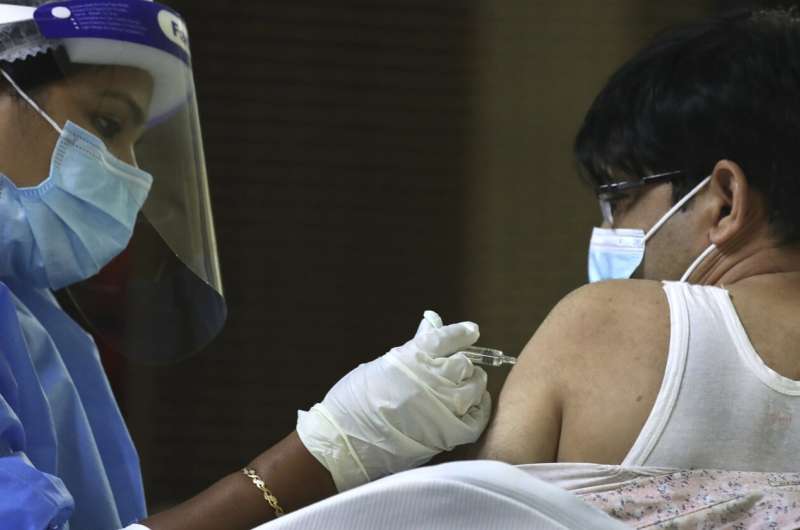
The United Arab Emirates announced Tuesday that it will begin offering a third booster shot to recipients of the Chinese state-backed Sinopharm vaccine six months after their initial two-shot vaccination.
The brief statement comes after some residents in the UAE reported receiving a third shot amid concerns about their antibody levels. Adding to the efficacy concerns, China’s top disease control official last month said that current vaccines offer low protection against the coronavirus.
China has distributed hundreds of millions of doses of domestically made vaccines abroad and is relying on them for its own mass immunization campaign. The state-owned company has not publicly published peer-reviewed data on the final stage clinical trial research and been criticized for a lack of transparency.
“As part of the state’s proactive strategy to provide maximum protection for society, the door has been opened for the public to receive an additional supportive dose of Sinopharm vaccine for people who have received the vaccine previously and who have completed more than six months on the second dose,” said Dr. Farida al-Hosani, an Emirati health spokeswoman, during a statement broadcast on state television.
The UAE initially said the vaccine was 86% effective in the first public release of information on the shot’s efficacy. But in the time since, it has offered no study data to support its figures.
In March, an official from a state-linked company distributing Sinopharm in the UAE acknowledged “a very small number” had already received booster shots of Sinopharm in the UAE. That interview with a state-owned radio network sparked confusion among those who already received Sinopharm and were later told they couldn’t then change to another vaccine.
The capital of Abu Dhabi extensively rolled out Sinopharm, while the neighboring emirate of Dubai began offering Pfizer-BioNTech and Oxford-Astrazeneca. In recent weeks, Abu Dhabi also began to offer the Pfizer shot as well.
The World Health Organization recently gave the shot emergency approval, potentially paving the way for millions of the doses to reach needy countries through a U.N.-backed program rolling out coronavirus vaccines.
Source: Read Full Article






